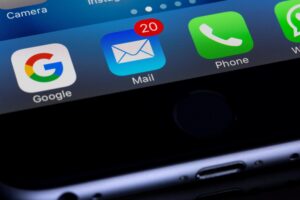How To Prevent Your Email Account From Being Hacked, 2023(Hacked Email Recovery)
Emails are a popular target for hacking in 2022, and many people have been affected. Hackers can use these hacked emails to spam others, or even get vital information, like your bank details, and steal your money from you. For example, I had an experience in 2019 when someone got access to my email address, they used it to hack my Facebook Page. To cut the long story short, it was not a good experience, and I would not wish it for anyone else.
How To Know If your Email Account Has Been Hacked
If you suspect that your email account has been hacked, there are several signs that can help you confirm your suspicion. Use the checklist below to confirm if your Email account has been hacked:
- You will receive a notification from your email service provider, for example, Gmail, notifying you about suspicious activity or logging in from an unfamiliar location.
- you can start receiving emails that you didn’t send or that contain links you didn’t click on.
- You are unable to log in to your email account, or you receive an error message when trying to do so.
- You will notice that your email contacts have received spam or phishing emails from your account.
- Your sent folder contains emails that you didn’t send.
- You notice unfamiliar account activity or changes to your account settings.

Also, read:
- How to open a Gmail account in 2022
- Neon Ray Pro Lipa Mdogo Mdogo(2022)
- Top 10 Ways of Making Money Online in Kenya In 2022
If you notice any of these signs, it is important to take immediate action to secure your hacked email account. This may include:
- Changing your password.
- Enabling Two-factor authentication.
- Scanning your device for malware.
- Contact your email provider for assistance.
Now let us see how you can secure your hacked account by looking at the above methods of securing your hacked email deeply:
How To Recover Your Hacked Email Account
Changing Password of Hacked Email.
If your email has been hacked, the hacker probably had your password. If you are lucky enough that they have not already changed it to lock you out, then you need to change the password to lock them out first. To do this, go to your security tab and change your password.
Make sure you change it to a strong password that is a unique one and you have not used it in any of your other accounts. Remember that they hacked it first because they easily found your password, so keep it safe this time.
Enabling Two-factor authentication.
Email providers like Gmail recently introduced two-factor authentication to help improve the security of emails. If you have not yet enabled two-factor authentication, this would be the perfect time to add this extra layer of security, making it more difficult for hackers to gain access to your account.
Scanning your device for malware.
Hackers these days have developed malware that is able to scan your phone or computer systems for emails, passwords and other sensitive information. So your email being hacked may be a symptom of a larger problem, such as a virus or malware.
Therefore, ensure you have your phone and PC scanned for malware and get rid of it.
Contact your email provider for assistance.
If you are unable to get access to your account because you were locked out, you may need to seek assistance from your email provider so that they can assist you from their end.
Also, read:
How To Prevent Your Email Account From Being Hacked
There are basic practices that you can practise to ensure that you minimise your account from being hacked. These practices include:
- Not visiting websites that require your passwords and email, yet they are not trusted.

- Not opening spam links sent to your email inbox. Every email account has a spam folder provided, try not to click the link or open the emails.
- Make sure you visit sites that are secure. You can know if a site is secure by looking at the lock icon that is usually before the website’s URL. Sites that have this lock icon have an SSL certificate meaning that it is trustworthy.
- Never save your passwords when you are using a public computer, or when you are on a public internet network. You can save these passwords on your personal computer or laptop because you are the only one with access to it.
- Make sure you have Antivirus software on your device so that any malware or device might be detected and cleaned.
- Avoid downloading files from the internet, especially from torrent sites and untrusted websites. This makes you vulnerable to hackers.
